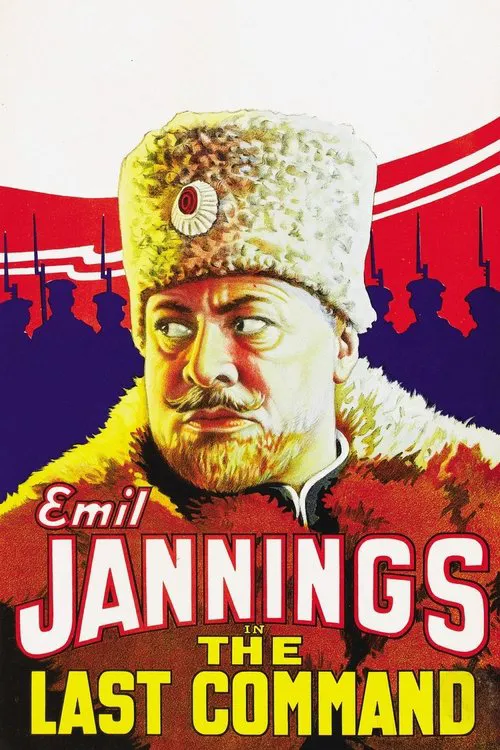The Last Command

Plot
"The Last Command" is a 1928 American drama film directed by Joseph von Sternberg, a German-American film director known for his work on silent movies. The film is a compelling exploration of the intersection of politics, culture, and identity, set against the backdrop of the tumultuous transition from Imperial Russia to the Soviet Union. The movie revolves around General Dolgorukoff, a former Imperial Russian general who is also a cousin of Czar Nicholas II. As the Russian Revolution gains momentum, Dolgorukoff finds himself in a precarious position. No longer a part of the crumbling aristocracy, he is forced to flee the country and seek a new life in the United States. Upon arriving in Los Angeles, Dolgorukoff discovers that his past experience in the military has endowed him with valuable skills that can be applied to the film industry. He lands a job as an extra in a movie directed by Carl Zinnes, a former revolutionary who is now a movie director. Zinnes has been drawn to the glamour and mystique of Hollywood, and has become obsessed with using his talent for creating cinematic masterpieces to spread revolutionary ideals. As Dolgorukoff navigates the unfamiliar terrain of Tinseltown, he is both fascinated and repulsed by the artificial, constructed reality that underlies the movie industry. The contrast between his aristocratic background and the democratic ideals of Hollywood is jarring, and Dolgorukoff struggles to reconcile his sense of self with the demands of his new profession. Throughout the film, Dolgorukoff's character serves as a symbol of the dislocation and disorientation that often accompanies social change. As he adjusts to his new surroundings, he is confronted by the complexities and contradictions of modern life. His interactions with the director, Zinnes, and his fellow extras reveal the complexities of power dynamics and social status in a rapidly changing world. Dolgorukoff's relationship with Zinnes is particularly noteworthy, as it highlights the tension between artistic vision and ideological commitment. While the director sees himself as a revolutionary, driven by a desire to use film as a tool for social change, Dolgorukoff's more practical and pragmatic approach to life is at odds with Zinnes's idealism. The film's cinematography and direction play a significant role in capturing the atmosphere and mood of the story. Shot in crisp, high-contrast black and white, the film's images convey the sense of nostalgia and dislocation that pervades Dolgorukoff's experience. The use of shadow, lighting, and composition creates a sense of depth and texture that adds to the emotional resonance of the story. In addition to its thematic concerns, "The Last Command" is notable for its representation of a bygone era. The film's depiction of Imperial Russia and the tumultuous early years of the Soviet Union provides a glimpse into a complex and often overlooked chapter in modern history. The movie's attention to period detail and its commitment to authenticity make it a valuable historical document, even as it engages on a deeper level with the universal concerns of identity, politics, and culture. As the story unfolds, Dolgorukoff's character is slowly revealed through his interactions with others and his own observations about the world around him. His is a tragic figure, a man who has lost his place in the world and is struggling to find a new sense of purpose. The film's portrayal of Dolgorukoff's emotional journey serves as a reminder of the human costs of social change, and the ways in which individuals are often forced to navigate and adapt in the face of unpredictable circumstances. Ultimately, "The Last Command" is a meditation on the nature of performance and identity. As Dolgorukoff navigates the artificial world of Hollywood, he is constantly forced to confront the tension between his true self and his constructed persona. The film's exploration of this tension serves as a commentary on the ways in which we all perform and present ourselves to the world, and the ways in which our identities are shaped by the demands of circumstance and culture. The movie's conclusion is both poignant and ambiguous, leaving the audience to ponder the implications of Dolgorukoff's journey. As the general fades into the background of the film's final shot, it is impossible not to be struck by the poignancy and vulnerability of his character. "The Last Command" is a film that lingers in the mind long after the credits have rolled, a reminder of the complexities and nuances of human experience in all its forms.
Reviews
Recommendations




